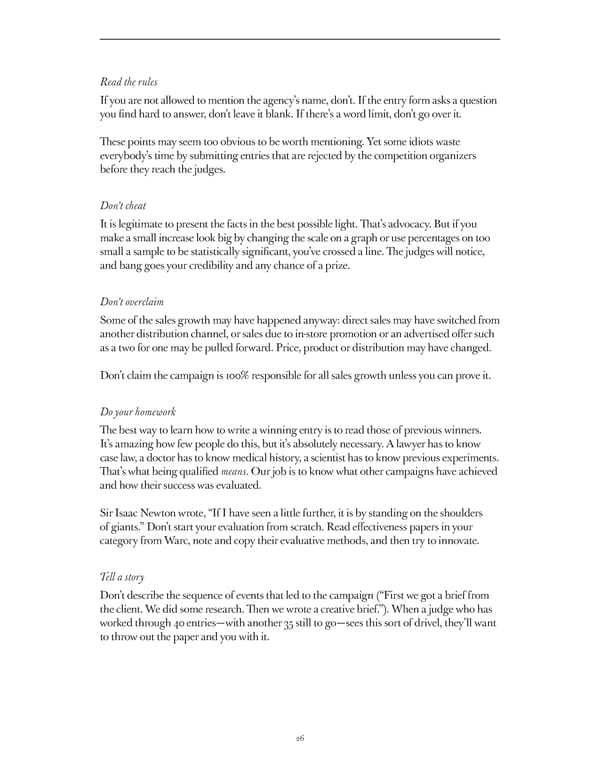Read the rules If you are not allowed to mention the agency’s name, don’t. If the entry form asks a question you find hard to answer, don’t leave it blank. If there’s a word limit, don’t go over it. These points may seem too obvious to be worth mentioning. Yet some idiots waste everybody’s time by submitting entries that are rejected by the competition organizers before they reach the judges. Don’t cheat It is legitimate to present the facts in the best possible light. That’s advocacy. But if you make a small increase look big by changing the scale on a graph or use percentages on too small a sample to be statistically significant, you’ve crossed a line. The judges will notice, and bang goes your credibility and any chance of a prize. Don’t overclaim Some of the sales growth may have happened anyway: direct sales may have switched from another distribution channel, or sales due to in-store promotion or an advertised offer such as a two for one may be pulled forward. Price, product or distribution may have changed. Don’t claim the campaign is 100% responsible for all sales growth unless you can prove it. Do your homework The best way to learn how to write a winning entry is to read those of previous winners. It’s amazing how few people do this, but it’s absolutely necessary. A lawyer has to know case law, a doctor has to know medical history, a scientist has to know previous experiments. That’s what being qualified means. Our job is to know what other campaigns have achieved and how their success was evaluated. Sir Isaac Newton wrote, “If I have seen a little further, it is by standing on the shoulders of giants.” Don’t start your evaluation from scratch. Read effectiveness papers in your category from Warc, note and copy their evaluative methods, and then try to innovate. Tell a story Don’t describe the sequence of events that led to the campaign (“First we got a brief from the client. We did some research. Then we wrote a creative brief.”). When a judge who has worked through 40 entries — with another 35 still to go — sees this sort of drivel, they’ll want to throw out the paper and you with it. 26
 A Guide To Effectiveness Page 25 Page 27
A Guide To Effectiveness Page 25 Page 27